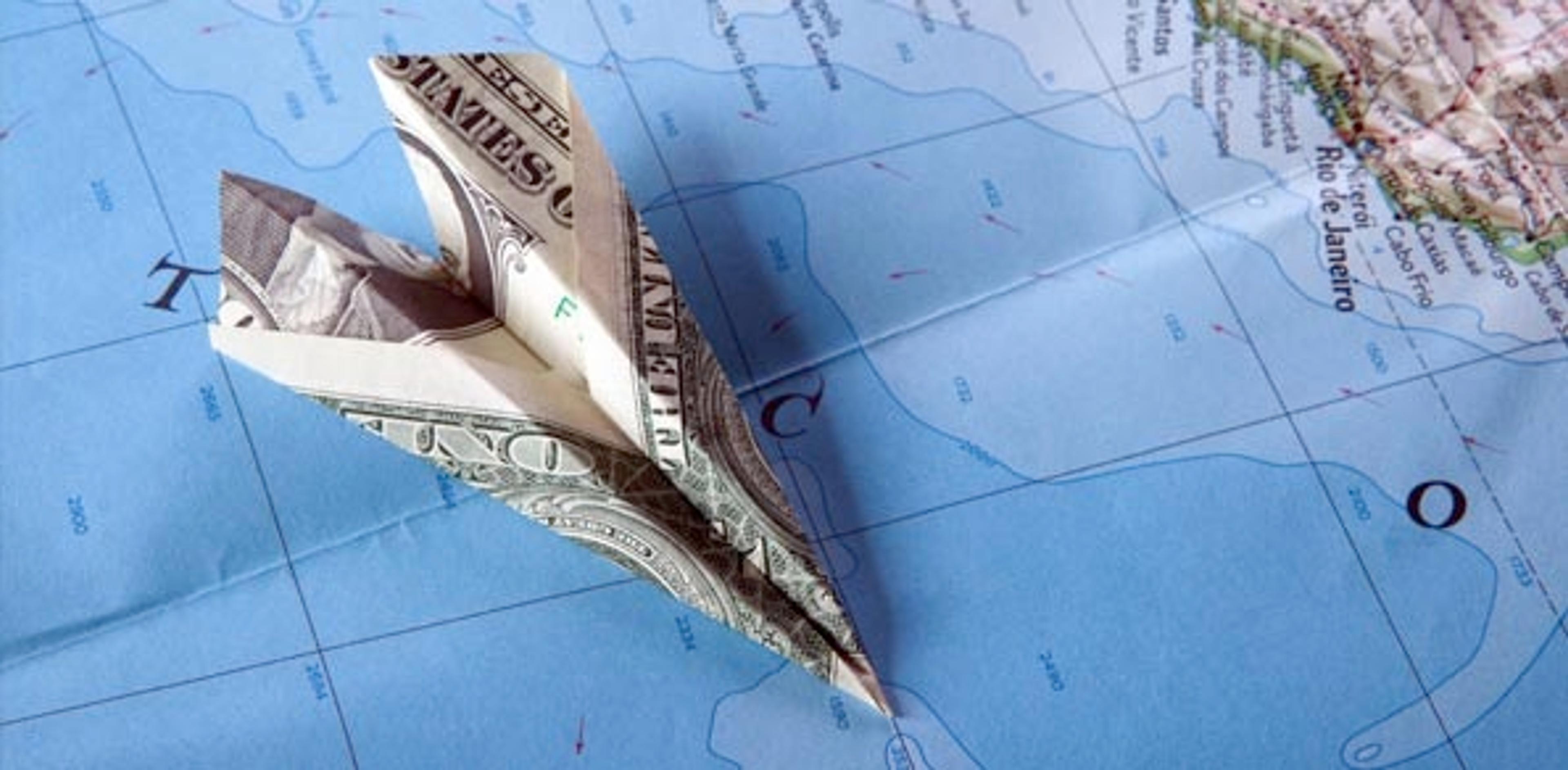Despite the economic growth of emerging countries over the past years, quality of life has not been improving proportionally in every country. Capital flight lies at the heart of this issue by depriving the states of the desperately needed financial resources. In this post, we will look at the issue of broad-scale corruption and how it affects the progress of developing countries. You can read about the related issue of small-scale corruption and how it impacts international development organisations here.
The Problem of Capital Flight

Capital flight entails the movement of assets or money out of a country or region. It can be a completely legal process, as when foreign investors decide to withdraw capital from a country as a result of an event of political or economic significance; or illegal, in the form of illicit financial flows (IFFS). The increase of illicit financial flows (IFFs) is a pressing issue for many developing countries. The sheer scale of the problem is striking when estimates of capital flight are put side by side with the amount of foreign aid flowing into Africa, and the countries’ debts. Capital flight is estimated to be 10 times the annual foreign aid flow and twice the amount of the debt being repaid by the emerging countries every year.
Peter Reuter’s report on IFFs, 'Draining Development?' depicts how capital flight has impacted on the social development of the emerging countries. Corrupt heads of state illicitly move state funds, very often received from developed countries, international development organisations or NGOs, into their private accounts to enrich themselves.The stories of Sese Seko of Zair, who is believed to have amassed more than $4 billion, or General Sani Abacha of Nigieria who looted the Nigerian Central Bank stealing nearly $2 billions, are just the tip of the iceberg.
Capital flight has a strongly negative effect on the economy, as corruption and embezzlement of public resources reduce government revenue. The government’s capacity to finance social services and other public investments is greatly eroded due to such drains on the resources. Moreover, the tax burden is being shifted on the middle class and the poor who effectively have to subsidize social services due to tax evasion- a form of capital flight - by high-earning organisations.
It is undoubtedly true that not all of the state revenue which would have been accrued by curbing money launderings, IFFs and the like would be channelled into priority areas (such as education or health). Nevertheless, Christian Aid estimated that if, for example, the same proportion of the tax revenues had been spent on health care since 2000, with the added tax revenue from avoiding capital flight, the lives of 350,000 children could have been saved every year. Furthermore, given the high correlation between corruption, IFFs and money laundering, it could well be that the attempts to tackle capital flight would have a spillover effect on other problematic areas.
Illegally acquiring public funds that would have been spent on running the country is the direct corollary of pervasive corruption scandals in Africa. Another strongly negative effect of capital flight is undermining the belief of people in the developed world in the effectiveness of foreign aid, reducing their willingness to donate. The multitude of stories about flamboyant political leaders, immune to the rule of law, the example being the son of Equatorial Guinea’s leader who was granted the position of a vice president to obtain immunity, provides the critics with ammunition to substantiate their view of foreign aid as a futile endeavour.
However, such a conclusion is misguided: the fact that some aid is misused does not mean that aid has little or no impact. In fact, the many success stories in international aid and the improvement in living standard across the developing world over the past decades show that aid has been, overall, a success. Further, we can increase the impact of our donations and avoid the impact of corruption by choosing to give effectively, to charities with a proven track record of transparency and high impact.
A few cases to think about
As an example of how disastrous the effects of capital flight can be, consider the case of Equatorial Guinea. The economic data indicate that Equatorial Guinea has sufficiently large domestic resources to manage poverty reduction. Since the discovery of its vast off-shore oil resources in 1995, the state revenue has sky-rocketed, and the country currently tops the list of African countries in terms of GDP per capita.
Despite having a population of less than 1 million people, which should further facilitate the poverty reduction, the living conditions have not dramatically improved, as one might have hoped. The Obiang government has moderately increased spending on health care and other social services, yet the infant mortality rate remains among the highest in the world, while the living expectancy is only 52.6 years. The alleged appropriation of part of oil revenues by the ruling elite in Equatorial Guinea plays an important role in the failure to use resources to improve the lives of people in the country.
The largest oil exporters in Africa, such as Nigeria, Angola, Gabon or Congo, feature on the top of the list in terms of volume of capital flight, implying a potential correlation between the incidence of capital flight and high resource endowment. However, I would argue that a poor record of governance is a strongly contributing factor and should be considered in conjunction with natural resource wealth. Poor governance is inextricably linked with endemic corruption, lack of transparency and ineffectiveness of the legal system, facilitating capital flight and impunity of perpetrators; most of the aforementioned countries were among the countries with highest level of corruption, according to Corruption Perceptions Index 2013.
Extraction Companies

A report issued by the Chr. Michelsen Institute (CMI) suggests that, given existing evidence, extractive industries are often associated with high levels of IFFs. The key listed factors included high discretionary control over the extraction sector and limited competition, which lead to lesser pressure on developing a system of scrutiny.
The role of western countries
The significance of oil revenues for many of the African countries puts them into a position where international players can leverage their position to maximize their revenues. Western governments have been very reluctant to improve the transparency of commodity trading, which is one of the main channels of capital flight. Such an initiative would not only help to curb the amount of capital, which leaves Africa, but could also stimulate the reduction in corruption and tax evasion by improving transparency of the economic system.
Countries such as Switzerland, one of the world’s leading commodity trading hubs, refuse to implement payment disclosure regulations. These countries appear to profit from this lack of transparency: for example, in all the oil-rich countries apart from Angola, Swiss traders were the buyers in at least 30% of identified national oil companies’ (NOCs) sales.
While inefficient tax systems and poor government structure, which facilitate the illegal practices, are important factors of the problem of capital flight, it would be out of proportion to blame only African governments. Countries which receive exorbitant cash flows from Africa should have to report it, much as the African countries have to adhere to the rule of law and accountable governance. The issue is unlikely to be addressed effectively unless there is a world-wide consensus about tackling the problem of capital flight.
As an example, the following practices are used to facilitate capital flight and would be good candidates for tighter regulation:
- Falsified invoicing – an importer may inflate the price so they can record lower profits, and, as a result, pay less tax. Conversely, an exporter might devalue the asset for the same purpose.
- Transfer mispricing – transactions between the affiliates of the same TNC are mispriced to move the money around to minimise tax
- Mispriced financial transfers – intra-corporate meddling with financial transactions to move the capital illicitly. This includes, for example, exaggerating the interest rate payable to a parent or subsidiary company
Conclusion
Poor governance, inefficient tax systems and corruption are at the heart of the problem of capital flight from African countries. Nevertheless, it is the failure of the global community to find a consensus on the matter, and to strive towards finding a solution, that is the biggest block in solving this problem. Illicit financial flows, as well as tax evasion by the TNCs, are enormous drags on the African economies, depriving them of much-needed revenue. Despite the calls of the G20 summit to crackdown on the tax havens, the world’s reluctance to take decisive steps suggests that the problem of capital flight will not be eradicated in the foreseeable future, but even starting to take steps in that direction could have a very high impact.
The source of much of the information in this article is Triple Crisis: Savings, Capital Flight, and African Development.